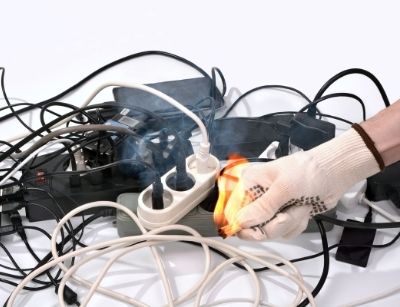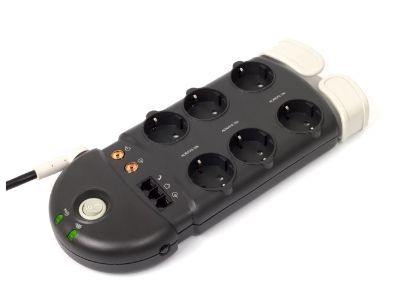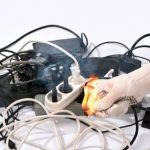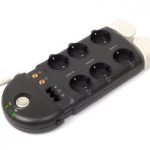
Practice Electrical Safety in May – and Always!
Practicing electrical safety at home is crucial for preventing electrocution and fires and protecting fixtures, appliances, and electronics from being damaged. Most homeowners already know the basics and pass on the wisdom to their kids – unplug the toaster before cleaning it, don’t use electronics near water, and of course, never put fingers or objects into an outlet.
But there are a few practices and tools that aren’t as well known and often overlooked or taken for granted. Keep reading to discover three key ways to keep the home’s electrical system safe and sound this month and year-round.
Stay Protected With Electrical Safety Devices
The first step toward a safer home is to install electrical safety devices. Some of these are requirements in most new homes, but some older homes still don’t have them. The two most important safety devices are GFCI (ground fault circuit interrupters) and AFCI (arc fault circuit interrupters).
GFCIs detect anomalies in the electrical current and instantly cut off power by tripping the breaker if one is detected. GFCI outlets, made to prevent electrocution, are typically installed outdoors or near water sources, such as kitchens and bathrooms. AFCIs are similar but instead break the circuit in the event of an arc (electricity jumping the gap between conductors). Since arcs can generate tremendous heat and ignite insulation and other materials, AFCIs are crucial for preventing electrical fires.
Tamper-proof outlets are another important device, especially for those with young children. These outlets don’t provide an electrical current unless each slot is activated simultaneously, meaning that even if a youngster with a paperclip gets curious, homeowners can avert the worst case. scenario
Watch Out for These Signs of an Electrical System Overload
The second way to maintain electrical safety is to ensure the home’s system isn’t overloaded. An overloaded system carries an increased risk of property damage, fire, and injury. Luckily, there are a few distinct warning signs. If circuit breakers trip often or fuses blow frequently, those circuits are likely overloaded. One common indicator is momentary flickering or dimming of lights, particularly when another first turning on a light or appliance.
If outlets or light switches are warm or produce any buzzing or crackling sounds, there’s a serious problem. In this case, homeowners should immediately turn off the breaker for that circuit and call their electrician.
The Importance of Surge Protection
The third step toward electrical safety is the use of surge protection devices. A power surge, whether from a lightning strike, an overloaded circuit, or a city-wide power grid issue, can severely damage electronics and even start a fire. Surge protectors are designed to minimize the impact of a sudden increase in electrical current by regulating the incoming flow.
The most common type of surge protector looks like a simple power strip. These can be found at most hardware and office supply stores and do a great job protecting major electronics like computers and entertainment systems. An even better option is a whole-home surge arrestor, which connects directly to the main electrical panel and protects the entire home. A professional electrician should install these to ensure safety and proper installation.
About Albritton Service Co
The family-owned and operated Albritton Service Co has been handling the HVAC and electrical needs of Ruston, LA since 1982. Customers can rest easy knowing that Albritton’s friendly and punctual technicians are licensed, insured, background-checked, and drug tested. They provide 24-hour emergency service and a 100% satisfaction guarantee. Call now for electrical services!
Distribution Links +
- lifestyle.us983.com
- ktvn.com
- panhandle.newschannelnebraska.com
- wrde.com
- midplains.newschannelnebraska.com
- metro.newschannelnebraska.com
- lifestyle.1045thedan.com
- wicz.com
- wboc.com
- snntv.com
- rfdtv.com
- htv10.tv
- central.newschannelnebraska.com
- southeast.newschannelnebraska.com
- northeast.newschannelnebraska.com
- plattevalley.newschannelnebraska.com
- rivercountry.newschannelnebraska.com
- wpgxfox28.com
- lifestyle.mykmlk.com
- wtnzfox43.com
- lifestyle.3wzfm.com
- lifestyle.bigtalkerradio.com
- lifestyle.rewindmymusic.com
- lifestyle.koltcountry.com
- lifestyle.967thewolf.net
- lifestyle.southernsportstoday.com
- lifestyle.thepodcastpark.com
- lifestyle.680thefan.com
- lifestyle.xtra1063.com
- lifestyle.953hlf.com
- lifestyle.rewind1019.com
- lifestyle.countrylegends1059.com
- lifestyle.967wshv.com






